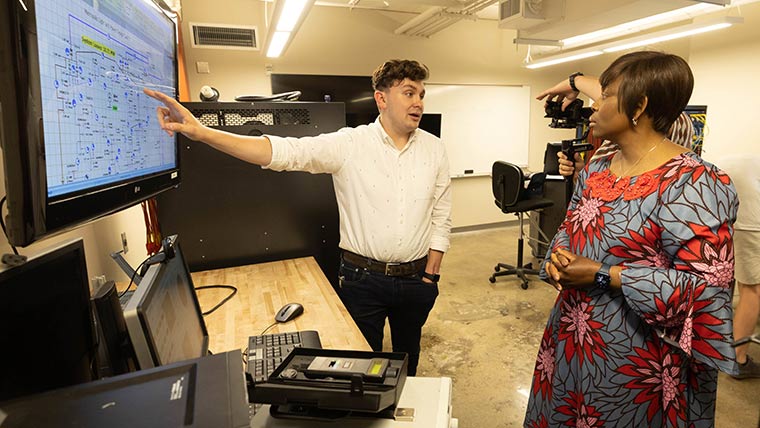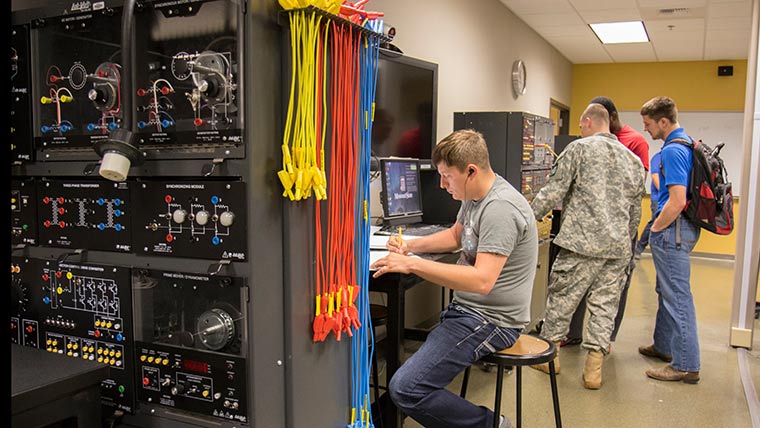Why major in electrical engineering at Missouri State?

Connect with employers and pros
We’ll set you up with local engineering companies so you can preview your career options. Most students do internships, co-ops or work part-time while in school.

Get the best of both schools
Earn your degree from the best engineering school in the state (Missouri S&T) as you enjoy the Missouri State community.

Enter a strong job market
When you graduate, you’re headed for a well-paid career. Entry-level electrical engineers earn about $70,000 per year; average annual pay is six figures.

Enjoy small class sizes, great facilities
With a low student-to-faculty ratio, you’ll get to know the people who teach you. You can develop your skills in state-of-the-art engineering labs and spaces.
Partners for your success
Missouri State offers engineering in cooperation with Missouri University of Science and Technology (Missouri S&T).
This means:
- All your courses are taught on Missouri State’s Springfield campus.
- Missouri S&T offers the engineering courses.
- Missouri State offers the non-engineering courses.
- Missouri S&T grants your engineering degree.
The cooperative engineering programs are open to all Missouri State students.
Areas you can study
Want to work on devices, circuits, computers or something else?
As an electrical engineering major, you can study a wide range of topics or focus on one area.
Emphasis areas include:
She's shining in the lab


In today’s connected world, your services will always be needed.
Resources for current students
Get set for upcoming classes and key deadlines.




